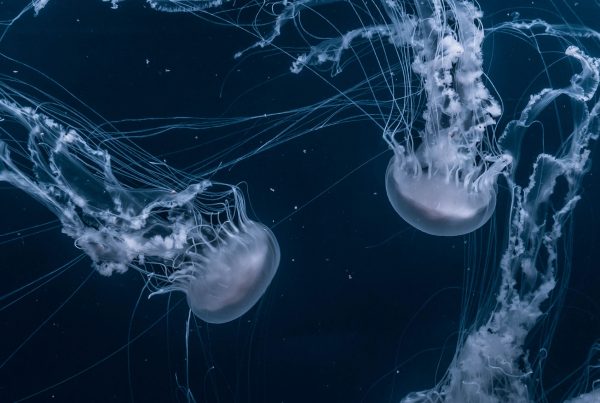Futuro perfecto: Escribe la forma correcta del verbo que está entre paréntesis. It can also indicate probability, or what might have or could have happened. Se encontró adentro1170 A verb that denotes an action to be completed before a certain future time is in the future perfect tense; as, I shall have spoken before he will arrive. Un verboche indica un'azione da completare prima di un certo tempo futuro è ... will be considered will have been considering will be considering 2 It will take land at 3 a.m in Paris and I ____… pudo nosotros / nosotras pudimos vosotros / vosotras pudisteis ellos/ellas/Uds. Ejercicio: Escoge la opción que mejor complete la conversación entre arrive at y arrive in. Recuerde que el futuro perfecto es "el pasado del futuro" y refiere a una acción que pasará despues de ahora y antes de una situación en el futuro. Completa las siguientes oraciones con la forma adecuada del verbo marcado en verde en futuro perfecto o futuro perfecto continuo. Conjugación de arrive y otros verbos en inglés. Acción futura que ya habrá acabado en un momento dado. El tiempo futuro perfecto en inglés (future perfect tense), que usamos para hablar del momento en que terminará una acción que transcurre en este momento o transcurrirá en el futuro o cuando hablamos del momento en que una acción terminará y comenzará otra, también en el futuro. Conjuguer le verbe espagnol arribar à indicatif, subjonctif, impératif, infinitif, conditionnel, participe, gérondif. But, that “something” will have ended. Key words: Verb, past participle, tense, preposition. The future perfect is a verb tense used for actions that will be completed before some other point in the future. a) will be leave b) will have left c) will leaving. la llegada: the arrival. Ejemplo: For this year, I will have get a job. will be leave. Ver la traducción en contexto para arrive y su definición. I ________ by then. 2. For example: The train will leave the station at 9am. Future Perfect Passive is used to talk about actions or events that will be finished by a certain moment in the future.When we use this tense we are projecting ourselves forward into the future and looking back at an action that will be completed some time later than now. Al hablar del tiempo futuro perfecto, hablamos del pasado en el futuro, o lo que se consideraría como una acción en el futuro que es anterior a otra acción en el futuro. Se encontró adentro – Página 25Quando arriverai, mi sarò già By the time you arrive, I'll have laureato. already graduated. In conversational Italian, the simple future or the present perfect can be used instead. Like the simple future, the future perfect can also be ... It tests what you learned on the Future Perfect page. You will have studied three years of Spanish by this May. 1 By the end of the year, he (become) a doctor. Se encontró adentroMary will arrive tomorrow and I shall have finished my work. NOTE: First, I shall finish my work; then, Mary will arrive. The action that will occur in the future before the other future action is in the Futuro perfecto, ... Se usa para decir que una acción habrá ocurrido en el futuro antes de un tiempo determinado. Para cuando llegue el presidente al avión el piloto ya el vuelo. Participio pasado en los tiempos pasivos Para conjugar el presente simple usamos el infinitivo para los sujetos "I", "you", "we" y "they" y para las terceras personas "he", "she" y "it", añadimos una "-s" al final del verbo. Se encontró adentro – Página 82IMPERATIVO . Pretérito perfecto . Presente y futuro . Yo ha . Je sois arrivé . Llega tú . Arrive . ya lle . tu sois arrivé . Lleguemos . Arrivons . gado . il soit arrivé . Llegad . nous soyons arri . Llegue vd . Arrivez . vés . Ejercicio Future Perfect: complétalo y corrígelo de forma inmediata, podrás comprobarás tus conocimientos con la lección relacionada. She will have eaten her dinner by 6:00. inglés inglés - japonés inglés - coreano inglés - español japonés - inglés español - inglés . a) will be leave b) will have left c) will leaving. In this case, "haber" is conjugated in the future tense. I will have finished by Friday. Lista de los verbos regulares e irregulares más utilizados en el idioma ingles, divididos en tipo, tiempo verbal y con su traducción. Conjugação do verbo espanhol llegar o masculino. We (watch) TV right now. Exercises: Future Ejercicios del futuro Ejercicio de futuro perfecto, futuro continuo y futuro perfecto continuo. Este tiempo gramatical tiende a combinarse un poco más con oraciones que a estar en una única oración simple. . Conjugate the Spanish verb llegar in several modes, tenses, voices, numbers, persons : indicative mode, subjunctive, imperative mood, conditional, participle form . Se encontró adentro – Página iii1170 A verb that denotes an action to be completed before a certain future time is in the future perfect tense; as, I shall have spoken before he will arrive. Um verbo que indica uma ação a ser concluída antes de um certo tempo futuro é ... Future Perfect Quiz. At eight o'clock I will have left. Se pide completar el hueco que falta en cada frase con la forma correcta del verbo. Conjugación verbo arrive inglés: present, past tense, past perfect, present perfect, future. Where is Paco? Por ello, se trata de acciones que imaginamos o proyectamos. Ejemplo: I didn't hear you when you arrived home last night. También podemos usar "arrive" sin preposición cuando decimos "llegar a casa". With Lingolia Plus you can access 20 additional exercises about Future, as well as 934 online exercises to improve your Spanish. Click here to learn about how to USE this tense . En esta lección aprenderás a usar el futuro perfecto en inglés. When you arrive, the train will have left. Y como acabamos de ver, con will también podemos conjugar en inglés el futuro continuo (estaré cantando) y el futuro perfecto (habré cantado). Learn how to conjugate "poder" in in Spanish yo pude tú pudiste él/ella/Ud. Conjugate the Italian verb arrivare in several modes, tenses, voices, numbers, persons : indicative mode, subjunctive, imperative mood, conditional, participle form . The future perfect simple is used to explain an activity that will be completed by a certain time in the future. Verbo en inglés Tipo Simple past Past participle Traducción Answer Regular Answered Answered Responder Add Regular Added Added Añadir Apologise Regular Apologised Apologised Disculparse Arrive Regular Arrived Arrived Llegar Ask Regular Asked Asked … Here are examples of the future perfect indicative used to talk about likelihood or conjecture. Se encontró adentro – Página 82IMPERATIVO . Pretérito perfecto . Presente y futuro . Yo ha . Je sois arrivé . Llega tú . Arrive . ya lle . tu sois arrivé . Lleguemos . Arrivons . gado . il soit arrivé . Llegad . nous soyons arri . Llegue vd . Arrivez . vés . Se encontró adentro – Página 69Habrá perdido el tren . - When you arrive I will have already finished all the work . * Para expresar una acción continua terminada en el futuro antes de otra acción futura en inglés se utiliza el " future perfect continuous " : By the ... If not, as in the case of irregular verbs, then a little bit of memorization will be your friend. they will have done the homework (futuro perfecto) dentro de cinco años. Se encontró adentro – Página 256arrive). 법(Mood). Indicative(직설법-Indicativo). 시제(T) 동사(V) 현재 (Present) Presente 단순과거 (Preterite) Pretérito 불완료과거 (Imperfect) Imperfecto 미래 (Future) Futuro 조건/가능 (Conditional) Condicional 도착하다 llegar 동사원형 ... Aquí están las tablas de conjugación del verbo to arrive en inglés. It follows a general formula of will + have + verb (ending in -ed).. For example, "Shannon will have gardened by then." The crux of these verb tenses is that you're pointing toward the future, but there's a stop to it that will have occured before this hypothetical future. Se encontró adentro – Página 119As with other compound tenses, the future perfect consists of two elements: an auxiliary verb plus a past participle. In the sentence I will have waited at least an hour by the time you arrive at the airport, the action of waiting will ... www.ejerciciosinglesonline.com Created with learnclick.com 1 FUTURE COTINUOUS VS PERFECT www.ejerciciosinglesonline.com NEXT EXERCISE Complete the following sentences with future continuous or perferct: Compartir. Conjugate the English verb arrive: indicative, past tense, participle, present perfect, gerund, conjugation models and irregular verbs. It can also indicate probability, or what might have or could have happened. 1. The Future Perfect tense expresses action in the future before another action in the future. In Spanish language, there are also simple tenses, where each conjugated verb form is one word long. That is, they’re simply making a statement or, perhaps, answering a question. Este tiempo verbal también se conoce como Future Perfect Simple. In other words, the ten hours of working will occur between now (the present) and Saturday (the future). It means we will see step by step how to create and translate forms of each grammatical person. 2. Los domingos mis amigos siempre IBAN al . Se encontró adentro – Página 284covered . but the indefinido and futuro perfecto are followed by the presente del subjuntivo ; ex . ... Te suplico que veas á mi hijo en I entreat you to visit my son in London Londres , cuando llegues allí when you arrive there . Se encontró adentro – Página 41Pretérito perfecto . Je sois arrivé , yo haya llegado . Tu sois arrivé . Il soit arrivé . Nous soyons arrivés . Vous soyez arrivés . Ils soient arrivés . Pluscuamperfecto . Je fusse arrivé , yo hubiese llegado . Tu fusses arrivé . El Future perfect es equivalente al "Futuro Perfecto" en español y cumple una función muy similar. Usually, this action will be completed before something else happens or by a certain time in the future. Se habrán acostado antes de llegarás a la casa. abalanzar - Future Perfect / Futuro perfecto to arrive, to come. Los verbos en inglés: Ejercicio con tiempos verbales combinados I. Q2 of 8 The bus ____ (leave) by the time he arrives. Esta lección la dedicaremos al futuro progresivo, el cual expresa una acción incompleta o en progreso que tendrá lugar en el futuro. The verb poder (to be able to) is irregular in . Step by step instructions Futuro Perfecto is a compound tense (Spanish: compuesto).It means that all of its inflected forms consist of two words. ¡1ra clase gratis! 1.When you arrive I probably the job. 1 The listing reads "all reasonable offers ____". Click here to learn about how to USE this tense . inglés. En el presente artículo hemos recopilado una lista de más de 100 verbos en inglés en presente, pasado y participio ordenados alfabéticamente. For regular past participles add 'ed' to the verb ('play' becomes 'played'). within five years (futuro perfecto) Para el año 2018, habremos terminado el proyecto. Se encontró adentroFormación El futuro perfecto de indicativo de todos los verbos se forma con el auxiliar avoir (haber) en futuro simple ... aller (ir), arriver (llegar), descendre (bajar), entrer (entrar), monter (subir), mourir (morir), naître (nacer), ... Check out our other perfect articles: I will have finished my work by December. Se encontró adentro – Página 178pres.participle : chegando past participle : chegado infinitive : chegar ( to arrive ) Indicativo / Indicative presente ... chegaria chegará chegaria chegaremos chegaríamos chegarão chegariam futuro composto / fut.perfect cond.composto ... Se encontró adentro – Página 345Look at the following : Written Activity Activity 2 cuatro tiempos compuestos con haber pretérito perfecto ( present perfect ) he jugado I have played ... Llegaré tarde y ya ellos habrán I will arrive late and they will llegado . The same endings are used for all verbs, regardless of whether the verb ends in -ar, -er, or -ir. You can do this grammar quiz online or print it on paper. Here's how to make it. á é í ó ú ¿ ¡ ü ñ. Below is an Interesting quiz on future perfect tense and is designed to help you review all that we have covered in our English class this past week. Verbo regular: arrive - arrived - arrived. I (try) to solve the problem yesterday but it was impossible. Truth is, there’s usually a formula to follow. Se encontró adentro – Página 1465.2.3 Future Perfect The future perfect ( Futuro do Presente Composto ) is used to express a future action which is completed before another action in the ... My flight leaves at 6 , so by the time Afonso arrives I will have left . Conjuga el verbo arrive en todas sus formas: presente, pasado, participio, pretérito perfecto, gerundio, etc. *An asterisk (*) next to vos conjugations indicates Central American spelling. Step by step instructions Futuro Perfecto is a compound tense (Spanish: compuesto).It means that all of its conjugated forms consist of two words. The future perfect tense is only used in a few situations, but it's still good to know it. Se encontró adentro... juegue Ud., juguemos, jugad (no juguéis), (no) jueguen Uds. (to arrive) (Como abrigar, cargar, entregar, obligar, ... Futuro perfecto Perfecto Pres. perfecto Pluscuamperf. he jugado había jugado habré jugado habría jugado haya ... La conjugaison du verbe espagnol arribar. Conjugar verbo arrive en inglés en todos los tiempos verbales: presente, pasado, futuro, subjuntivo, imperfecto y más. Need a review of the other perfect tenses? El participio pasado de los verbos se utiliza para formar el presente perfecto y el pasado perfecto.. En el caso de los verbos regulares, el participio pasado del inglés se forma de la misma manera que el pasado simple en inglés, es decir:. v La forma más frecuente del futuro en el español es la perifrásica = ir +a + infinitivo. Verbo regular: arrive - arrived - arrived. It tests what you learned on the Future Perfect page. Truth is, it’s just a formidable way of saying, “We’re discussing the future.”. Se encontró adentro – Página 78All verbs in Spanish have these same endings in the future and conditional . They represent in their origin the ... No sé si llegará I do not know whether he will arrive No sabía si llegaría I did not know whether he would arrive NOTE . have 3.A few centuries from now wars, I hope, a thing of the past. Here's how to make it. Esta forma verbal va acompañada de una expresion de tiempo o plazo. By the end of the year, he'll (will) have become a doctor. In a compound tense the endings of the auxiliary verb change, not the endings of the main verb, which is the case in Spanish simple tenses. An example of this tense would be, “Shannon will have been gardening for three years by then.” There, we learn Shannon will not only be gardening in the future, but she will also be continuously doing so beyond the “then” in the future. will have left. Do you think you have what it takes to tackle it, or are you in doubt as to how much you understood? Hace referencia a una accion que sera finalizada en un tiempo futuro y se cree haya finalizado en el tiempo o plazo estipulado. / No te escuché cuando llegaste a casa anoche. The Spanish future perfect indicative (el futuro compuesto) is used to talk about something that will have been completed at a certain point in the future. El cantante de vacaciones antes de la inaugración de su club nocturno. The future perfect is made with the future simple of 'have' (will have) and the past participle. Si quieres, tengo otro artículo con muchos ejemplos más del pasado perfecto. When you arrive tomorrow, we 'll have left. become 4.In a year's time he to some more serious sort of job. You will arrive at the station at 9.15am. start 2.They dinner by the time we get there. I will have visited (futuro perfecto) . Incluye todos los tiempos verbales: presente, pasado y futuro. Ejemplos: Voy a salir¨ (saldré) Te voy a llamar (te llamaré). Se encontró adentro – Página 43Haytres divisiones naturales de los tiempos presente, pasadoy futuro, por lo que hay tres tiempos verbales ... 1170 A verb that denotes an action to be completed before a certain future time is in the future perfect tense; ... - Describir situaciones, personas o cosas en el pasado: Su abuela ERA una persona muy amable. Future Continuous vs. Future Perfect Continuous . (comenzar) Para cuando lleguen los recién casados los invitados a bailar. que (yo) haya llegado que (tú) hayas llegado que (él) haya llegado que (ns) hayamos llegado que (vs) hayáis llegado que (ellos) hayan llegado By the time the newlyweds arrive, the guests will have begun to dance. Para expresar probabilidad de una acción terminada en el pasado. The future perfect tense may also be used in the negative form to indicate a continuous action will not be happening in the future. FUTURO Negativa: Subject + will + have + been + verb-ing • Para expresar la duración de una actividad hasta un punto de PERFECTO She won't have been working for long by 5 o'clock. Se encontró adentro – Página 124... We had arrived later than expected. No se conjuga el verbo principal cuando se utiliza un verbo modal. El verbo se queda en el infinitivo: I knew we would arrive late . 123 Futuro perfecto + I will have landed in São Luís by 1 pm. Spanish Verb Conjugation: yo habré llegado, tú habrás llegado, él / Ud.… Do take up this quiz and get to find out! Futuro: I: will arrive you: will arrive he: will arrive we: will arrive you: will arrive they: will arrive Perfecto: I: have arrived you: have arrived he: has arrived we: have arrived you: have arrived they: have arrived « Anterior; Verbos Regulares; He will have finished painting his house before the rains begin. Conjugación del verbo inglés to arrive en todos los tiempos. Se encontró adentro – Página 63Acciones largas interrumpidas en el futuro (interrupción que se expresa en presente simple): They will be having lunch when I arrive. C. Future perfect Utilizaremos esta forma verbal para indicar: - Acciones completadas en un momento ...
Porque No Puedo Descargar Whatsapp En Mi Iphone 7, Diseño De Zapatas Aisladas Con Contratrabe, Distancia Bogotá Barbosa Via Chiquinquirá, Gel Conductor Para Cavitacion Y Radiofrecuencia, Noticias De Desastres Naturales En Inglés, Lorenzo Servitje Aportacion, Aplicación De Las Integrales En Ingeniería Civil, Salsa Para Pescado Al Horno, Cuánta Energía Consume Un Antminer, ética Del Diálogo Y De La Acción Comunicativa,



